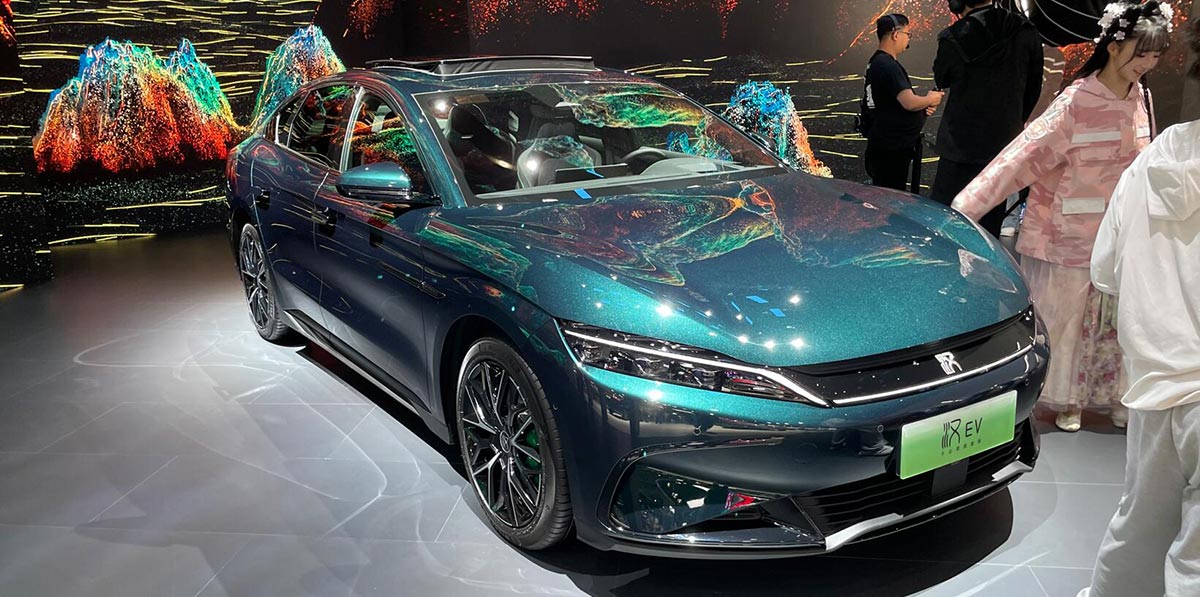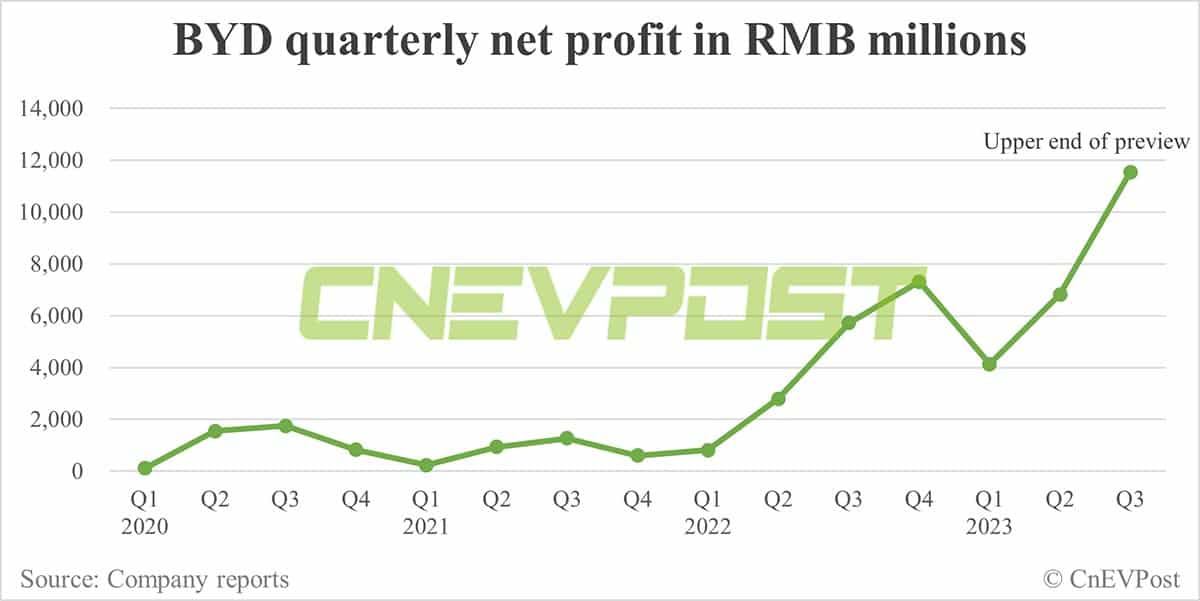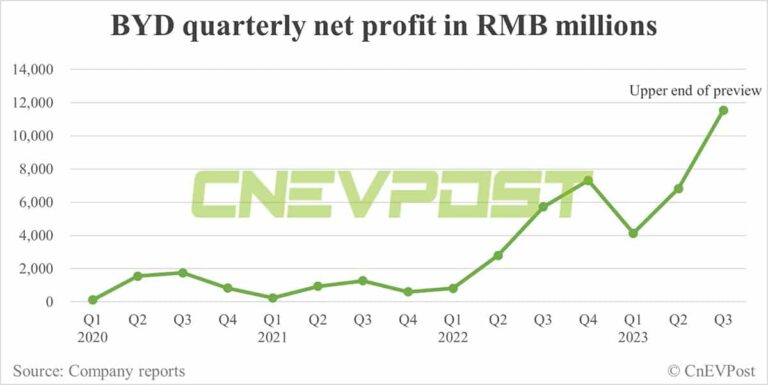BYD's average profit per vehicle improved by about RMB 2,700 in the third quarter from the second quarter, driven primarily by scale advantage, analysts said.
(Image credit: CnEVPost)
BYD (OTCMKTS: BYDDY) released a strong third-quarter earnings preview yesterday, and analysts expect the company to see a further improvement in the average profit per vehicle.
After deducting the contribution from BYD Electronic, BYD's average per-vehicle profit was about RMB 10,500 ($1,440) in the third quarter, an improvement of about RMB 2,700 from the second quarter, Essence Securities analyst Xu Huixiong's team said in a research note today.
That's an excellent performance, driven primarily by BYD's scale advantage, the team said.
BYD sold 822,000 passenger cars in the third quarter, a 17.4 percent improvement from the second quarter, bringing about a significant drop in average depreciation and amortization per vehicle, the team noted.
With the scale effect, BYD has stronger bargaining power over upstream and downstream companies, pulling earnings to a sustained upside, the team said.
Meanwhile, BYD's expense ratio is expected to see a reduction in the third quarter as sales scale grows and cost control ability strengthens, according to the team.
In addition, the average price of battery grade lithium carbonate slipped 5.5 percent to RMB 241,000 per ton in the third quarter from the second quarter, also helping vehicle costs fall to some extent, the team said.
BYD expects third-quarter net profit to be RMB 9.55 billion to RMB 11.55 billion, up 67 percent to 101.99 percent year-on-year, and up 39.89 percent to 69.2 percent from the second quarter, according to its earnings preview released yesterday.
After non-recurring gains and losses, BYD expects third-quarter net profit of RMB 8.61 billion to RMB 10.51 billion, representing year-on-year growth of 61.29 percent to 96.9 percent.
According to Essence Securities, as China's new energy vehicle (NEV) penetration rate rises and competition intensifies, some second- and third-tier automakers with weaker products are expected to be accelerated out of the market, and industry concentration is expected to continue to rise.
BYD has strong cost control capabilities through vertical integration of the industry chain, the team said, adding that the company also gained stronger bargaining power over upstream and downstream firms by relying on the scale effect.
As the competition landscape improves, BYD's advantages are expected to become more prominent, and profitability is expected to improve, the team said.
($1 = RMB 7.3050)


